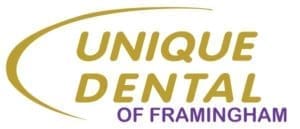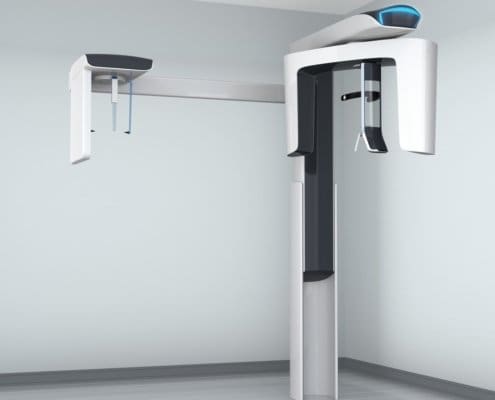In routine dentistry, professionals order x-rays to evaluate the jawbone, crowns, and the roots of your teeth. They allow doctors to identify and diagnose problems beneath the skin’s surface. CT scans provide three-dimensional imaging to give your doctor a usable blueprint of your oral and maxillofacial structure.
What is a CT Scan?
CT or computed tomography scans offer medical professionals a detailed and clear picture of your teeth and bones. Unlike the CT scanning machine used for full-body imaging, dental CT scanning machines work much like a dental x-ray machine. Patients sit upright as an x-ray device rotates around the skull to capture a three-dimensional image. The process is fast and compared with other CT scans and emits a relatively low amount of radiation.
Dental professionals should not recommend a CT scan without a clear reason for going above and beyond routine x-rays. The presence of certain risk factors, symptoms, and planning for certain procedures may all warrant the use of a dental CT scan. Once ordered, the CT scanning process is fast and effective. Your oral surgeon can look at the results on a monitor as soon as the image processes and use the information to make improved diagnostic and procedure planning decisions.
HOW DO DENTISTS AND SURGEONS USE CT SCANS?
Dentists and oral maxillofacial surgeons use CT scans for either diagnostics or procedure planning. Here are some of the most common reasons you would want your oral professional to order one:
- You will undergo a surgery involving bone grafting, jaw reconstruction, or dental implants. The detailed results of a CT scan will help your surgeon answer questions about where and how to approach the surgery and what to use. With a three-dimensional blueprint, your surgeon can better avoid possible complications during a procedure.
- Your doctor needs to understand more about a possible tumor or illness. To diagnose and treat oral cancers, a doctor may need the information of a CT scan. The results will display tumor size and location. CT scans can also play an instrumental role in diagnosing other disorders, including impacted wisdom and canine teeth.
- You’ve experienced some type of facial trauma. After a car accident or another type of trauma, a CT scan helps your surgeon understand more about serious facial damage and how to address it.
Think of CT scans as you might a video game. On a two-dimensional screen, you can only make an educated guess about three-dimensionality. A CT scan is kind of like putting on a pair of virtual reality goggles. You can see details, including depth and the degree of angles. If your dentist or surgeon orders a CT scan, you’ll know he or she is focused on delivering high-quality support with some of the best diagnostic equipment available today.

